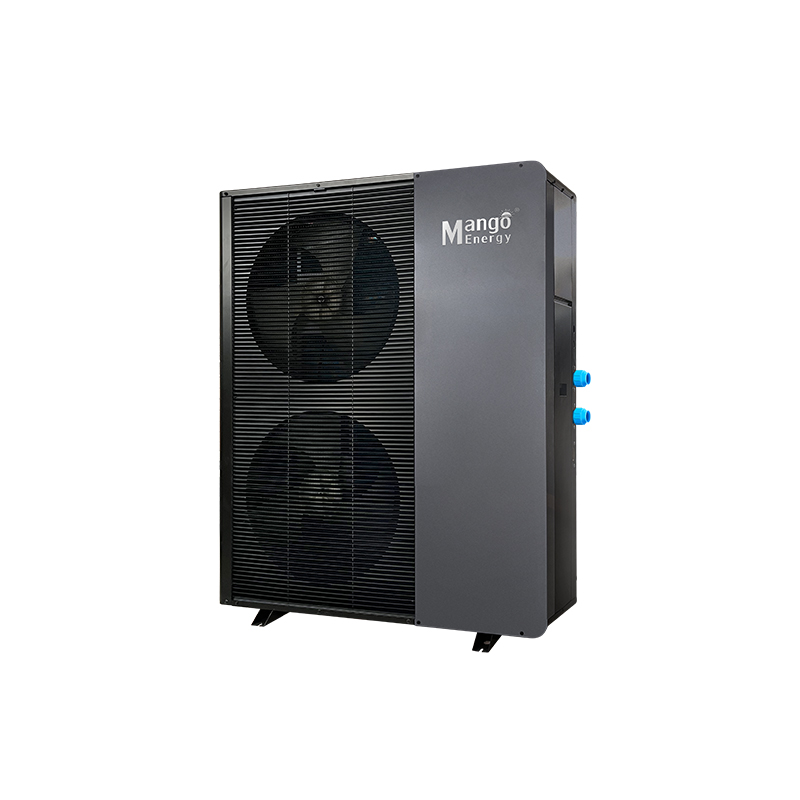
As we strive to minimize our environmental footprint and embrace sustainable practices, the choice of heating solutions for swimming pools becomes increasingly important. Among the various options available, pool heat pumps stand out as a green and eco-friendly solution. In this article, we will delve into the reasons why pool heat pumps are a sustainable choice for heating swimming pools, highlighting their efficiency, renewable energy utilization, and minimal environmental impact.
1. Efficiency and Energy Conservation:
Pool heat pumps operate on the principle of transferring heat from the surrounding air to the pool water, rather than generating heat through combustion or electrical resistance. This process makes them remarkably energy-efficient, as they utilize a small amount of electricity to move heat rather than generating it directly. Unlike traditional heating methods such as gas heaters, which rely on burning fossil fuels, heat pump pool heaters produce significantly lower greenhouse gas emissions and consume less energy.
2. Renewable Energy Utilization:
One of the key advantages of pool heat pumps is their ability to harness renewable energy sources, such as solar energy and ambient air temperature. Unlike solar panels, which directly convert sunlight into electricity, heat pumps indirectly utilize solar energy by extracting heat from the air, even on overcast days. This reliance on renewable resources reduces reliance on non-renewable energy sources and contributes to a greener, more sustainable energy landscape.
3. Minimal Environmental Impact:
Compared to other heating options for swimming pools, such as gas heaters or electric resistance heaters, pool heat pumps have a significantly lower environmental impact. Gas heaters burn fossil fuels, releasing carbon dioxide and other pollutants into the atmosphere, while electric resistance heaters consume large amounts of electricity, often generated from non-renewable sources. In contrast, heat pump pool heaters produce fewer emissions and consume less energy, resulting in a reduced carbon footprint and mitigating environmental degradation.

4. Long-Term Cost Savings:
While the upfront cost of installing a pool heat pump may be higher than traditional heating systems, the long-term cost savings and environmental benefits outweigh the initial investment. Heat pumps are highly efficient and can significantly reduce energy consumption and utility bills over time. Additionally, many governments and utilities offer incentives and rebates for installing energy-efficient pool heating systems, further offsetting the initial costs and promoting the adoption of green technologies.
5. Extended Swimming Season:
Another advantage of pool heat pumps is their ability to extend the swimming season, allowing pool owners to enjoy their pools for longer periods throughout the year. By maintaining optimal water temperatures, even during cooler months, heat pump pool heaters enable comfortable swimming experiences and maximize the utility of outdoor pools. This extended usability enhances the overall value and enjoyment of the pool while minimizing the environmental impact associated with seasonal shutdowns and re-heating.
Pool heat pumps offer a green and sustainable solution for heating swimming pools, combining energy efficiency, renewable energy utilization, minimal environmental impact, and long-term cost savings. By harnessing the heat from the surrounding air and utilizing renewable energy sources, heat pump pool heaters reduce greenhouse gas emissions, conserve energy, and promote environmental stewardship. As we strive towards a more sustainable future, pool heat pumps emerge as a viable and eco-friendly option for heating swimming pools, providing comfort, efficiency, and environmental responsibility.


